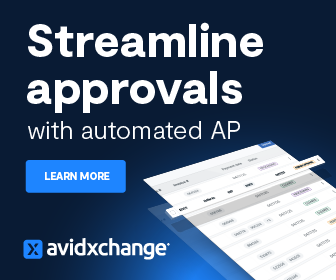Microsoft Excel is a tool that every finance professional knows all too well. Many love it, some despise it, and a few are indifferent. If your team is still clinging to Excel and adheres to the “If it ain’t broke, don’t fix it” mindset, it’s time to consider the risks of antiquated spreadsheet software.
Unfortunately, the line between useful and risky can become blurry, especially when your team is in the process of crossing it. Our guide breaks down the risks of Excel so you can recognize the warning signs that it’s time to upgrade to a modern finance tool.
Excel: A Tool We Love to Trust
Excel is everywhere in finance. It’s flexible and accessible. As far as spreadsheet software goes, it’s plenty powerful, too. But as businesses scale, what once helped you keep the company’s finances in order can actually introduce serious risks.
It’s understandable why so many organizations cling to Excel for far too long. Microsoft includes Excel as part of its Microsoft Office bundle. Countless businesses rely on these tools, such as Office, PowerPoint, and Outlook, every day. But eventually, it becomes time to leave Excel behind.
The Comfort Zone Trap
Many controllers trust spreadsheets because they feel familiar. Learning a new platform is challenging. But staying comfortably wrapped up in Excel can mask the risks. Manual inputs, copy-paste errors, and outdated file versions can all erode financial accuracy. Without access to timely, accurate financial data, decision-making slows and the risk of missed opportunities is much greater.
Spotting the Warning Signs
Are monthly closes taking too long? Are your teams emailing files back and forth, often forgetting to save the latest version? Have Excel typos become a daily occurrence?
If you answered “Yes” to any of these questions, Excel has outlived its role for your organization. It is now time to make your case for an upgrade. To do that, you’ll have to convince company decision-makers that a modern accounting solution is worth the investment and that Excel no longer meets the organization’s needs.
When Errors Become Costly
Simple typos and spreadsheet errors can lead to huge miscalculations when you are closing your books for the month. Tracking down where the mistake was made and fixing the error can lead to thousands of dollars in wasted time and resources. If you operate in a tightly regulated industry, the error may lead to fines or failed audits. Can your business really afford those sorts of consequences?
Stop Playing “Hunt the Spreadsheet”
Have you ever wasted a morning trying to find the correct spreadsheet? Even if you track down the file you need relatively quickly, the ordeal can derail productivity and crush your momentum. This error is fully preventable if you ditch Excel.
A centralized accounting tool ensures all authorized users can quickly find and access the data they need. That means no more wasted mornings looking for the information you need to start your work day.
Auditability and Compliance Challenges
Spreadsheets lack clear audit trails and role-based access controls. That makes it difficult to meet compliance requirements or pass internal audits with confidence. The more complicated your data becomes, the bigger the liability of Excel.
The Limited Scalability of Excel
As your company grows, Excel remains the same. In fact, it’s been relatively stagnant for years. That’s why so many finance pros are comfortable using the platform and why they are hesitant to change. But the reality is, growing beyond the limits of Excel is a good thing. It’s part of the process.
Adopting a modern, scalable, and cloud-based program gives your business the resources it needs to keep growing. Integrated platforms provide a holistic view of the company’s financial performance, allowing you to see the big picture.
The Impact on Team Productivity
Chasing down the latest version of a spreadsheet and correcting errors wastes time. Reformatting data translates to more wasted time and lost opportunities to get work done. You need better tools to be productive and meet your output goals.
If you want to put the full talent of your team to work, empower them with modern solutions and cutting-edge capabilities. A cloud-based ERP puts all of the data and tools you need in one place. No more bouncing between old-school, disconnected applications like Excel.
FP&A Needs Real-Time Insight, Not Excel
Modern financial planning requires data integration, real-time dashboards, and rolling forecasts. You aren’t going to get any of that with Microsoft Excel or other rudimentary spreadsheet software. Excel simply wasn’t designed for this level of agility.
Reducing your dependency on spreadsheet software and embracing the next generation of financial tools is the key to growing your organization. Excel won’t disappear, nor should it. It remains useful for rapid prototyping, but its role must evolve — and ideally, shrink — in line with your company’s demands.




